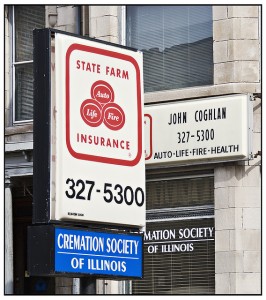Private Health Insurance Exchanges in New York State
Jun 16th, 2014

Credit: Seth Anderson via Flickr under Creative Commons
One of the biggest trends shaking up the world of New York State health insurance these days is the rise of private health insurance exchanges. These private exchanges operate very much like the more familiar public individual and small business health insurance exchanges operated by New York State.
Private Health Insurance Exchanges have become increasingly popular among larger employers in New York State and across the country. A private health insurance exchange is very much what it sounds like.
Public vs. Private Health Insurance Exchanges
More likely than not you’re already familiar with the public New York State health insurance exchange. The public New York State of Health Exchange comes in both an individual and small business version where customers can shop for health insurance that meets the standards of the Affordable Care Act (ACA).
As you may have guessed a private health insurance exchange does pretty much the same thing, except it is administered by private companies rather than the state or federal government. These private companies can be health insurance companies, brokerage firms, consulting firms, or even big businesses like Walmart or CVS.
The major advantage of private health insurance exchanges has been what they can offer to employer groups, especially large employers. For businesses that are trying to actively control the cost of offering their employees health insurance, private exchanges offer a unique alternative to the traditional method of simply cutting benefits and asking employees to contribute more towards their health insurance premiums.
Typically private exchanges work like this:
Employers give their workers a set amount of money to be used for health insurance and then direct them to the private health that the company has contracted with. The private exchange takes care of all the paperwork and manages the health insurance administration for the employees.
Once employees have their allotted health insurance money they can shop for a health plan or any other benefits offered by the private exchange. This empowers employees to shop for the best option for them rather than having to accept the only plan offered by the business. The business benefits from the cost and time savings because the private exchange has already negotiated the rates and benefit offerings for their plans.
Federal health insurance subsidy?: not at a private exchange
While there are several benefits to contracting with a private health insurance exchange, one thing that you will not get at a private exchange (that you will at the public New York State exchange), is a federal health insurance subsidy.
The much-touted federal health insurance subsidy is only available to those who qualify for it if they purchase their health insurance through the public New York State health insurance exchange. For a good majority of New Yorkers, this will not be a deal breaker, but for those eligible for the subsidy it could mean the difference between being able to afford health insurance and going uninsured.
Depending on your annual income level, the subsidy could be quite substantial. If you make between 133 and 400 percent of the current year’s Federal Poverty Level (FPL) you’re eligible to receive a subsidy. The amount of that subsidy depends on where along the spectrum you fall. The closer you are to 133 the larger your subsidy and vice versa until you exceed 400 percent FPL.
The subsidy is great news for those lower-income New Yorkers looking for help to purchase a private health insurance plan. The kicker comes when those low-income New Yorkers are employed at a large company that has contracted with a private health insurance exchange. They will not be able to purchase a health insurance plan with a subsidy at the public exchange if the coverage at the private exchange is considered to be affordable and comprehensive enough.
Private Exchanges are here to stay
Despite the lack of a federal health insurance subsidy available at private health insurance exchanges, they have been growing in popularity even faster than most experts predicted. According to data released by the consulting firm Accenture and reported by the New York Times, at least three million people signed up for coverage last year through a private health insurance exchange. That number is about three times the number of people that Accenture estimated would enroll for coverage through the private exchanges when they weighed in on the matter last fall.
The charge to switch over to private health insurance exchanges is being led by those companies with 1,000 or more employees, according to the same data set. Despite private exchanges’ pitch as an alternative to the public exchanges, most of their offerings are high deductible plans that are very similar in cost and offerings to those sold at the public New York State health insurance exchange.
The idea though is that employees will be able to make smarter decisions about their coverage, as well as be able to choose from a wider selection of different types of insurance like disability or life insurance, while at the same time saving the company money.
While the Affordable Care Act has done a lot to make health insurance more affordable and available to some, it still has much to do when it comes to addressing the inflating cost of health care. That cost gets passed onto employers who are expected to provide health coverage to their workers without raising prices elsewhere. Until the core issues fueling the rise of healthcare costs are dealt with, private exchanges will likely continue to be a viable option for business.
Related posts from our blog:
No related posts.
Tags: health insurance | new york state health insurance exchange | private health insurance exchange
Posted in: Simon Bukai | Comments Off